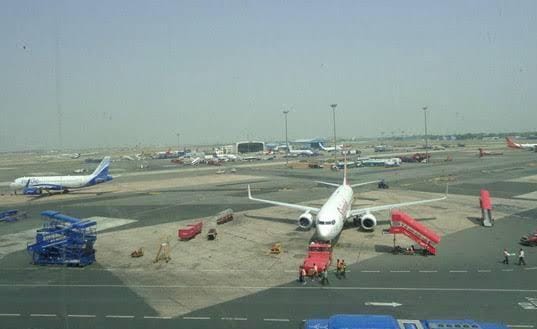Srinagar, Jun 29: Authorities at the Srinagar International Airport began a structural safety audit of all buildings on its premises as a preventive measure days after a roof collapsed at Delhi’s Indira Gandhi Airport, killing one person and injuring eight others, officials told news agency—Kashmir News Observer (KNO)—on Saturday.
The development follows an order by the Union Minister of Civil Aviation Ram Mohan Naidu Kinjarapu, that the airports across the country should conduct a “structural preliminary inspection” at the earliest.
Kinjarapu added his ministry had adopted “proactive measures” after the mishap at Delhi Airport’s Terminal 1 amid heavy rains.
Director Srinagar Airport, Javed Anjum, told KNO that the airport authority had tied up with the National Institute of Technology (NIT) Srinagar to assist in a structural safety audit directed by the minister.
“We will do a detailed structural audit in consultation with the experts from NIT Srinagar and submit a report to the ministry as soon as possible,” he said.
Anjum claimed that the engineering team of the Srinagar airport did regular inspections of all the structures as a preventive measure, which were found intact and without fault.
According to him, the main buildings of the airport were constructed under the able guidance of experts from the Indian Institute of Technology (IIT) Delhi and NIT Srinagar.
“Everything, including all the designs, was thoroughly checked and rectified by the experts before going ahead with the construction,” he said.
The director further said that the construction at Delhi Airport is done by a private agency, while the government runs the show at Srinagar Airport.
“In the government sector, we do the major and sensitive works under foolproof planning and execution. So, there is no chance of any mishap like what happened at Delhi Airport,” he said.
The Airports Authority of India (AAI) manages more than 100 airports in the country, including the one in Kozhikode. However, major airports like Delhi, Mumbai, Bengaluru, and Hyderabad are managed by private companies—(KNO)




